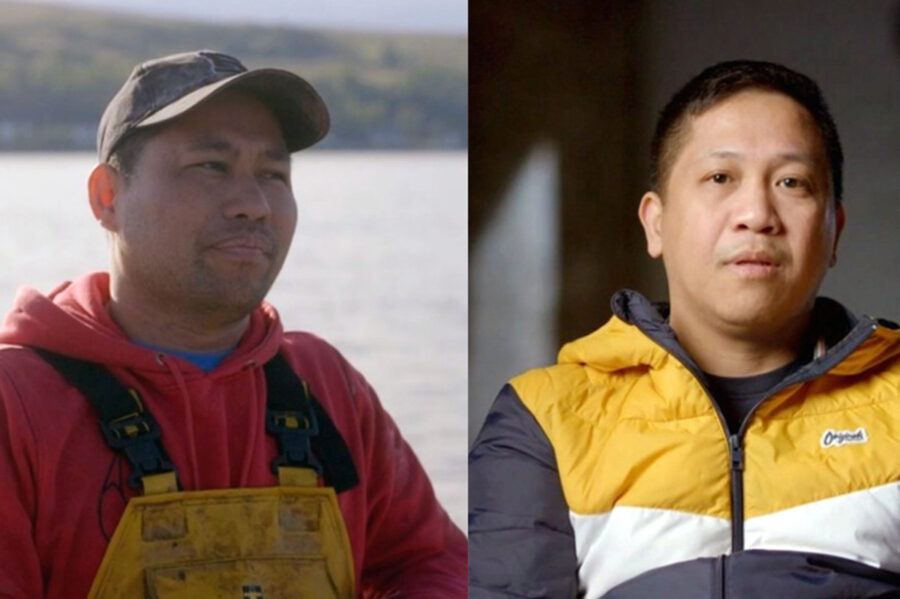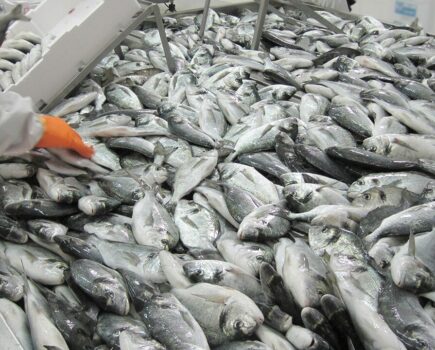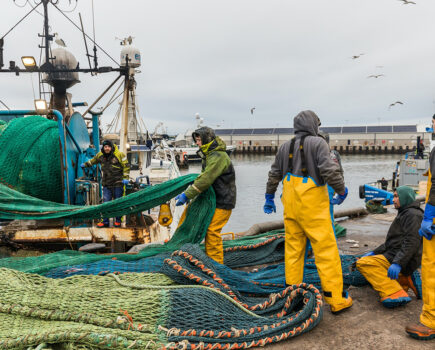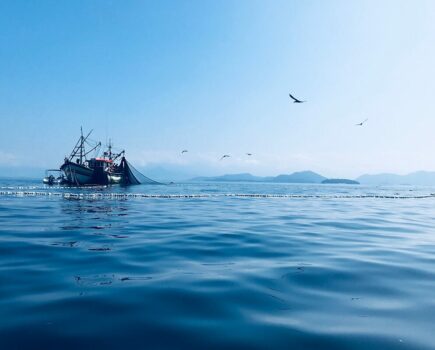A BBC Scotland documentary broadcast recently, alongside a similar programme on BBC Radio 4, laid bare a catalogue of alleged abuse of foreign crew on the scalloping vessels owned by Annan-based TN Trawlers, over nearly a decade.
The programme spoke at length with foreign crew from the Philippines, Ghana and India, who provided detailed information about an employment regime that saw them short of food and water and working dangerously long shifts – and where, in many cases, their promised salaries fail to materialise.
In several instances, crew arriving on transit visas were transferred to a vessel other than the one stated, invalidating their visa and putting them at risk of arrest or deportation. Two of the crew were seriously injured during their time working for the company. A third died following an accident at sea.
In total, over a period of nearly 10 years, prior to the TN Trawlers fleet being tied up in 2020, 18 former employees were passed into the Home Office’s National Referral Mechanism, a system which identifies and supports victims of human trafficking.
Alongside extensive interviews with many of the affected crew, the documentary looked at the support provided to them by the Fishermen’s Mission. It also spoke at length with Mike Park, chief executive of the Scottish White Fish Producers’ Association (SWFPA), about the development of the SWFPA’s own crewing agency and employment scheme, designed to protect foreign crew working in the UK from exploitation.
A long-running and hugely expensive investigation into TN Trawlers by the MCA is still underway, with the owners’ assets frozen by the courts – though a judge in Southampton recently made it clear to the MCA that any further delay in the case would see him remove the freezing order.
Despite years of investigation, with the affected crew remaining in the UK pending a decision, no trafficking charges have been made. While condemning the delay, the programme failed to explore just why it has taken so long for UK authorities to conclude investigations into the scandal.
To date, TN Trawlers has pleaded guilty in a single case, from 2012, that saw the vessel continuing to fish after crewman Joel Quince had been knocked unconscious by a scallop bar. After considerable delay, he received £3,000 in compensation from TN Trawlers in October 2022, which was fined £13,500 for safety breaches.
A spokesperson for TN Trawlers denied any allegation of modern slavery or human trafficking. “The overwhelming experience of our workers was that they were well treated and well remunerated. We dispute many of the accounts put to us, in some cases over a decade on.
“We absolutely refute any allegation of modern slavery or human trafficking and our many testimonials and long- term employees are testament to that.”
He said the company regretted the delay in bringing Joel Quince ashore for medical treatment. “We fell short on that occasion. We have accepted responsibility, compensated and we apologise to that individual.”
The programme’s opening sequences highlighted one story with a happy ending. Crispin Alisaca, one of the Filipino crew who, under the National Referral Mechanism, has been able to remain in the UK as investigations continue, found a new berth on Clyde prawn trawler Guide Them GK 17, operated by Alistair Roberts.
“I am so happy because Alistair is the best employer, and I like the boat,” he told interviewers.
Report ‘separated the past from the current’
SWFPA chief executive Mike Park was the only fishing industry representative to appear in the programme.
The SWFPA has its own crew services division, and has played a leading role in recent years in recruiting foreign crew into the UK and ensuring they are employed under fair and ethical conditions.
Mike Park said the programme focused on historical abuse, and gave an opportunity for him to emphasise that employment conditions for foreign workers on UK vessels have changed in the past decade, and to explain what has been done to instigate that change.
“What the programme did do to my mind was to separate the past from the current,” he told Fishing News.
“It was useful that one of the Filipino seamen at the end said he was grateful to be employed here, which had enabled his daughter to now be studying to be an aeronautical engineer.
“It was almost a balanced piece of work. It was right to analyse what TN Trawlers did – no one can say that was right; it was a horrendous episode – but I think it was clear from the statements, certainly by myself, that much has been done since that point in time to ensure the safety of workers.”
He said the SWFPA had been right to throw TN Trawlers out of the association in 2016/17 because of its treatment of its migrant crews.
“Fisheries offences are one thing, but treating people as slaves is another – you just can’t tolerate that kind of behaviour.
“In the last three years, our organisation has done a lot to improve the standards of non-UK crews in terms of contracts, wages and safety, and we now insist that no seaman should pay a penny before he leaves his country of origin.” Crewmen interviewed in the programme said they had had to pay sums ranging from £1,000 to £3,000 to agents before leaving for the UK.
“We don’t make them pay anything – we recover it from the employer,” said Mike Park. “Where we couldn’t knowingly put in place reputable agencies, we just set up our own.”
Work Driven Social Responsibility pilot scheme in the pipeline
The SWFPA, with other partners, is in the process of implementing a Worker Driven Social Responsibility (WDSR) scheme to ensure foreign crew are not exploited or subject to ill-treatment.
This includes a grievance procedure attached to a code of conduct and a third-party audit process.
The scheme is modelled on the Fair Food Program in Florida, which was set up to protect Mexican workers in the tomato industry. SWFPA chief executive Mike Park and five members visited Tampa in Florida earlier this year to see the programme in operation.
A pilot scheme involving about 20 boats in North East Scotland is expected to start soon. Mike Park said: “The draft code of conduct that everything depends on has now been drawn up, and is with the legal teams. So we’re just waiting for that to come back before we then crack on – it’s taking longer to construct than we thought.”
This story was taken from the latest issue of Fishing News. For more up-to-date and in-depth reports on the UK and Irish commercial fishing sector, subscribe to Fishing News here or buy the latest single issue for just £3.30 here.
Sign up to Fishing News’ FREE e-newsletter here.








